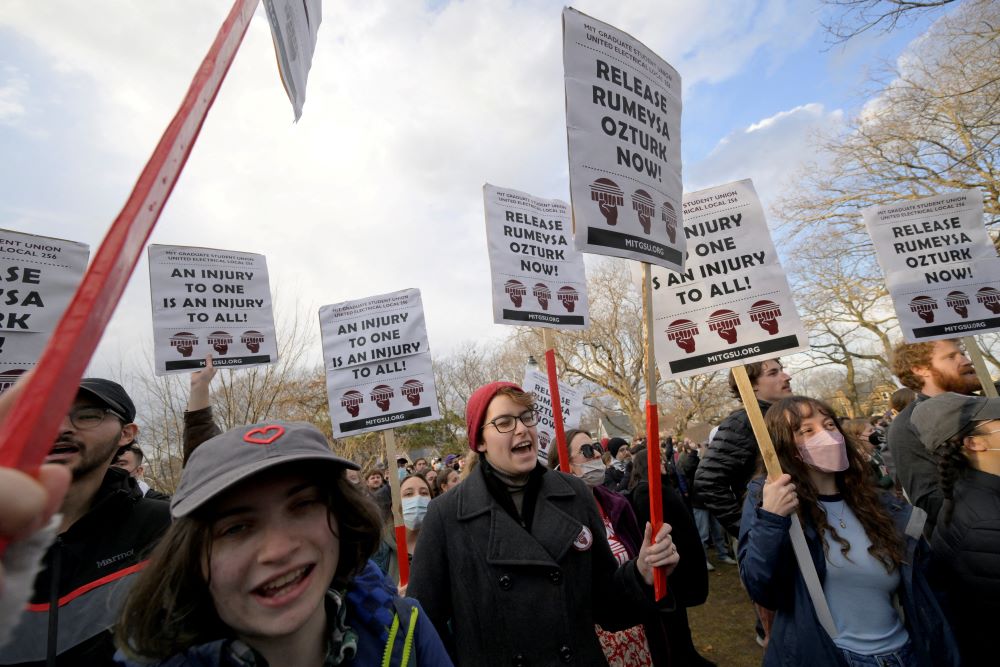A federal judge has ordered the release of Rumeysa Ozturk, a Turkish doctoral student at Tufts University, after she spent six weeks in immigration detention following her arrest over an article critical of Israel. The case, marked by a viral video and masked federal agents, has drawn sharp criticism and is being viewed as a symbol of the mounting pressure on pro-Palestinian students under the Trump administration.
The decision came from U.S. District Judge William Sessions III, who ruled that Ozturk’s arrest was “illegal” and “unjustified,” adding that it threatened to chill the free speech of millions of non-citizens residing in the United States. Sessions, a federal judge appointed under President Barack Obama, wrote in his opinion that the government’s actions had crossed constitutional lines.
Ozturk, who held a valid visa for her PhD program in psychology, was apprehended in March near the Tufts campus by agents with the Department of Homeland Security. Video footage of the arrest, later shared widely online, showed agents with their faces covered, sparking outrage among civil liberties advocates.
Federal authorities accused Ozturk of expressing support for Hamas — a group designated by the U.S. as a terrorist organization — in a column she wrote for an independent Turkish-language journal. Her arrest became one of the most high-profile cases tied to Trump’s vow to crack down on foreign nationals participating in or promoting pro-Palestinian activism.
Ozturk’s legal team confirmed Friday that she will return to Turkey on Saturday, as her visa was revoked at the time of her arrest. “While we welcome her release, the damage has been done — not only to our client, but to the broader principle of free expression,” her attorney said.
Her release comes amid growing unrest on U.S. campuses, where law enforcement responses to student demonstrations have increasingly involved riot gear, warrantless searches, and tactics that civil rights groups describe as disproportionate. Although the court intervened in Ozturk’s case, dozens of students and researchers remain under investigation.
The Department of Homeland Security declined to comment on the ruling.
Civil rights advocates warn that the Ozturk case may signal a broader trend of suppressing dissent, particularly among international students and academic researchers. “This ruling underscores what’s at stake when immigration law is used as a blunt instrument to police political speech,” said a spokesperson for the American Civil Liberties Union.












